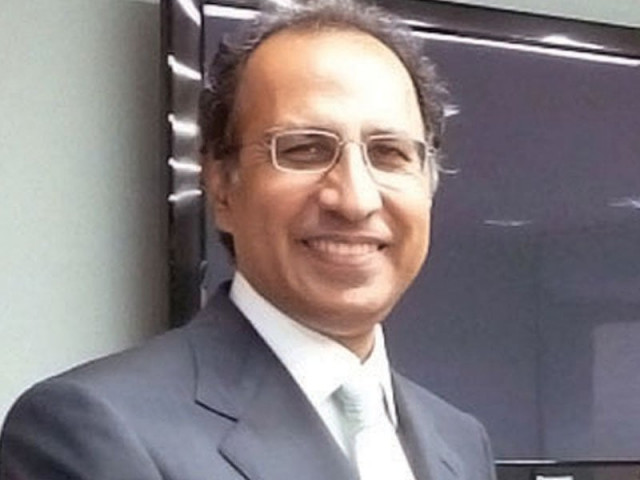IMF deal at comparatively low mark-up: Hafeez Shaikh
PM's aide says global lender's programme will benefit the poor, create jobs

File photo of Dr Abdul Hafeez Shaikh.
Adviser to Prime Minister on Finance, Revenue and Economic Affairs Abdul Hafeez Shaikh said this while addressing a press conference at the Sindh Governor House on Thursday.
He said that the loan agreement would send a strong message to countries around the world that Pakistan has decided to implement fiscal and monetary discipline, while the loan programme would help collect higher revenue.
Pakistan, IMF strike $6 billion deal
"This (IMF programme) is a good signal to foreign investors, cross-border trading partner countries and friendly countries to increase foreign investment in Pakistan. The IMF economic stabilisation programme would help facilitate the underserved section of society and create employment opportunities going forward," he claimed.
The IMF program carries three-four salient features that would be beneficial for the poor section of the society, especially the upward revision in power tariff as it exempts those who use less than 300 units a month. "We have allocated Rs216 billion in the budget to subsidise electricity for them," Shaikh said.
Similarly, the government would make sure that the upward revision of the gas tariff does not impact the bottom 40% consumers. Secondly, the government would increase funding for the poor by Rs80 billion to Rs180 billion under the social safety programme in the next fiscal year 2020, Sheikh said.
Rupee hits all-time low of 148.5 against US dollar in inter-bank market
Thirdly, the budget allocation for the Public Sector Development Programme (PSDP) would be increased to Rs700-800 billion in the next fiscal year from around Rs550 billion in the current year. “This would help create job opportunities,” the finance adviser said.
Speaking about the budget for the next fiscal year, he said it would aim to increase revenue collection and reduce expenditures. “The key aim is to transfer the minimum burden of the huge debt onto the people,” the adviser said
Rupee free fall
Responding to a question, he said the State Bank of Pakistan's (SBP) monetary policy committee, which is autonomous and having good economists, was responsible to determine rupee-dollar parity keeping in view the prevailing economic situation in the country.
“The markets are coping with a tough situation, which has emerged due to foreign debt to the tune of $97 billion. This debt has eroded the country's foreign currency reserves which are down to $9 billion at present from as high as $18 billion in the recent past,” he said.
Sheikh also rejected speculation regarding new taxation on the stock exchange. "There is no tax proposal under consideration which would negatively impact Pakistan stock market," he replied to a question.
Responding to a query regarding the performance of the economy under the Pakistan Tehreek-e-Insaf (PTI) –led government, he said that PTI formed the government at a time when the economy was in the worst possible state. “We have made some progress through partially narrowing down the trade and current account deficits and removing some unnecessary burden on foreign currency reserves.”
Pakistan ponders action after rupee’s free fall
Amnesty Scheme
On the issue of the recently approved amnesty scheme, the PM’s financial adviser said it would allow people to whiten their black money by paying a nominal 4% tax including on movable property and cash within Pakistan. “The rate would be 6% for those whose want to declare cash but do not want to transfer it to Pakistan,” he said.
People can also whiten undeclared real estate through paying 1.5% value of the property. Anyone can avail the scheme except public figures.
Earlier, Sheikh met the Karachi business community at the Sindh Governor House, and heard their concerns regarding the IMF programme and its impact on the process of industrialization, renowned businessman Arif Habib told The Express Tribune.



















COMMENTS
Comments are moderated and generally will be posted if they are on-topic and not abusive.
For more information, please see our Comments FAQ